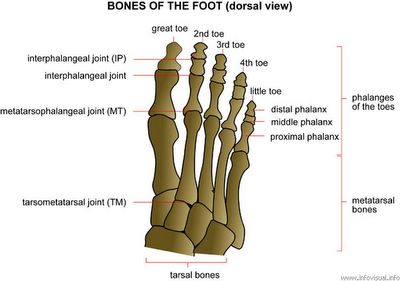But first, the "why?"
You should regularly spread your toes because if you're like most of us, your feet are trapped inside shoes and socks most of the time. While they're in there, the toes can't move freely and naturally. The normal muscle tone and coordination starts to break down. From there, it's the domino effect. You start to have real troubles with your feet like collapsed arches and bunions.
Spreading your toes also broadens your feet and makes your more stable.
Lastly, toe spreading also improves the overall tone and control of the legs. This control of the legs is vital in standing poses. You establish a stronger connection to the earth.
It's probably even more important for folks who are new to inversions. I notice that students who are just starting to experiment with the upside-down poses forget about their legs. When you look at them, you see their legs are limp and ineffective.
Try spreading your toes when you're upside-down and the legs wake up and become more useful. You can use your legs to pull your body weight up. You lighten your own load.
Pulling yourself up by your own bootstraps takes on new meaning!
Here's my suggestion:
1. Establish a baseline. Take your shoes off. Stretch your legs out in front of you while sitting on the floor. Spread your toes. Notice how effective (or for some of you, ineffective) you are at spreading your toes.
2. Warm and stretch the feet. Cross your legs and put the fingers of your right hand between the toes of your left foot. All of them. All at once. If you're dextrous, you'll be able to wiggle the left fingers between the right toes at the same time. Now wait. Let the feet warm from the heat of your hands. And dig the fingers deeper between the toes to open the space between each toe over time.
3. Look. You've got to look. I am amazed at how many of my students don't focus their attention by looking. They glance for a moment and then let their eyes wander to something else. Please look at your feet. You need to find out whether the signal you send with your nervous sytem arrives at your feet. You'll be able to see this only if you look. I would not trust how it feels for a while.
4. Spread the bones in the body of your foot. This is the BIG tip. If you attempt to simply spread your toes apart, you'll have some success. Try it. But you'll really be able to move your toes wider apart if you try to spread apart the long bones in the main body of the foot. They're called the metatarsal bones. See the difference?

Don't just spread the toes. Create space between the metatarsals, too.

5. Compare to your baseline. Look for and acknowledge progress, as compared to your baseline performance.
6. Practice this regularly. If you can do it every day, do it.
7. Go barefoot. Unless you have plantar fasciitis, you should go without your shoes AND SOCKS as much as possible so that when you walk your foot naturally splays and gets stronger, more flexible, and more coordinated.
Here's to good foot health.
Don't just sit there. Get up. Experience it. Experience yoga!
Kevin Perry
www.ExperienceYoga.org
p.s., My friend Lauren Lyerla is conducting a very special workshop for adults who are interested in giving children the gift of yoga. I hope you'll contact her and join in the fun and effective instruction.
A Taste of YogaKids" One-Day Workshop for Adults
September 24, 2005, 9am – 5pm, St. Louis
- Yoga techniques you can use right away with the kids in your life.
- Help kids stay healthier, learn better, focus longer, stressless, and have fun!
- Based on Multiple Intelligences theory, YogaKids educates the “whole child” using yoga as a pathway to learning.
- No yoga experience necessary.
- Great for: Parents, Physical Therapists, Occupational Therapists, Yoga Teachers, Educators, Healthcare Professional, Psychologists
- Includes “YogaKids: Educating the Whole Child Through Yoga” by Marsha Wenig and certificate of completion.
To register: Please call 800-968-0694, or visit www.yogakids.com
Tuition: $149 ($169 after 09/16/2005)
Led by YogaKids Trainers Lauren Lyerla and Meg Krejci.
Workshop will be held in the beautiful, light-filled chapel of First Unitarian Church of St. Louis, 5007 Waterman Boulevard.
This workshop is educational, practical, and loads of fun.






No comments:
Post a Comment